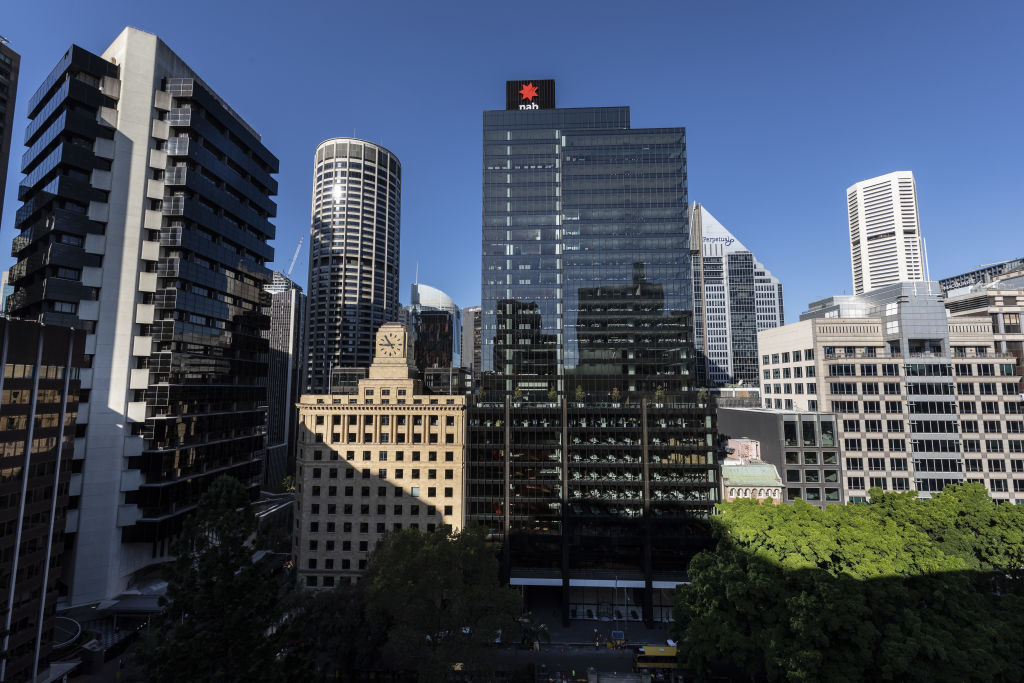The Sydney CBD’s new $2 billion transport, office, retail and hospitality precinct Brookfield Place is being seen as a major weapon in the battle to win workers, shoppers and leisure visitors back into the city centre.
Ready to be unveiled and completely opened with the easing of COVID-19 restrictions, it’s now getting prepared for a major influx of people curious, and eager, to see how the area has been transformed.
“This can be used as a fantastic precinct to introduce people back into the city,” said Sophie Fallman, managing partner real estate at Brookfield Real Estate Group. “It will remind us how good that feels as we come back after lockdown and enjoy the places and assets of the Sydney CBD.”
She was speaking at a webinar organised by the Property Council of Australia to showcase the massive new development at Wynyard to all the major players around town.
More than 10 years in the making, the precinct and its station now have a new, much more grandiose entrance, the freshly-renovated heritage Shell House has been integrated into a brand-new 27-level office tower on the site of the old 1960s Menzies Hotel, and 285 George Street and 32 Carrington Street have both been renovated. In addition, there’s now a series of clear pedestrian walkways and an array of new boutiques and restaurants in place of the old rabbit warren of stores.
More than 95 per cent of the office tower’s 75,000 square metres of premium-grade space is now committed with companies like NAB, Allianz, Hub and Brookfield, which is establishing its Asia Pacific headquarters here. Over 80 per cent of the retail space has also already been taken up with a range of topflight brands and eateries. Another restaurant will be established on the rooftop of Shell House by The Point Group, with the whole precinct stitched into the newly-pedestrianised George Street.
“The transformation of Wynyard is a visionary project that has showcased the world-class architecture, design and development skills in the property industry,” said Luke Achterstraat, NSW executive director of the Property Council of Australia.
“As NSW emerges from the COVID pandemic and we return to office, this innovative example of placemaking at Wynyard is the sort of drawcard we need to reboot and revitalise our CBDs. The property industry is a critical lever in our state’s future; a salient reminder that NSW is the best place to live, work and play.”
The transformation was one of the most complex operations ever undertaken in the history of Australian construction, engineering and architecture, however. Moreover, it had to be conducted while around 120,000 people every day – bar during the lockdown periods – were using the precinct, either coming in via the train line, or working and shopping there.
It involved suspending the 65-metre-tall masonry commercial core of the building, with its 1930s clocktower – together weighing around 600 tonnes – up high to open up spaces under and through the site, so pedestrians could walk under it, rather than having to walk around it.
“The technical challenges were huge,” said Carl Schibrowski, Brookfield Properties executive vice-president and co-head Australia. We also had to resolve commercial agreements with the state of NSW, Transport NSW and Sydney Trains as well as all the owners of the various buildings, and then NAB wanted to amalgamate the fully-tenanted Shell House into the office tower.
“All the time, we couldn’t close the site down, as 120,000 people had to keep working there a day. We had a saying on site: ‘You can’t scare me; I work in Wynyard’.”
Simon Lincoln, the Asia Pacific director of lead architects Make Architects, took part in the design excellent competition held by the City of Sydney in 2013 and subsequently moved to Sydney for the project, to work with executive architect Architectus Australia.
“It was an uninviting and uninspiring place that spiralled down into Wynyard with myriad inaccessible routes, some of which no one even knew existed and there was such a lack of clarity around the whole area,” he said. “Over time, more layers had been added with introduced even more confusion.
“But now we’ve managed to introduce grandeur and clarity. The ground plane had been repaired to alleviate the congestion and there are more intuitive routes through the space. The solutions appear simple but they were highly complex. And Brookfield Place is now open for business when we’re allowed back in, and should be a catalyst for the future.”
